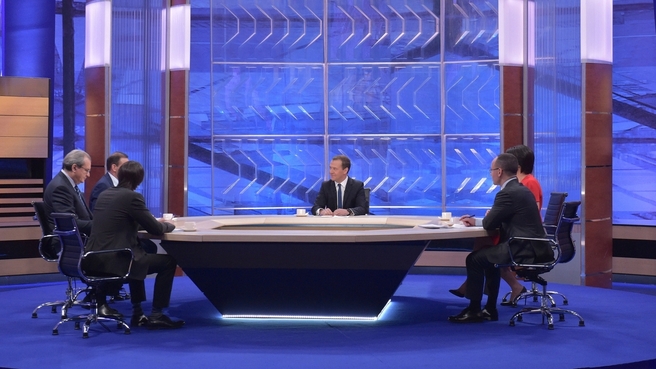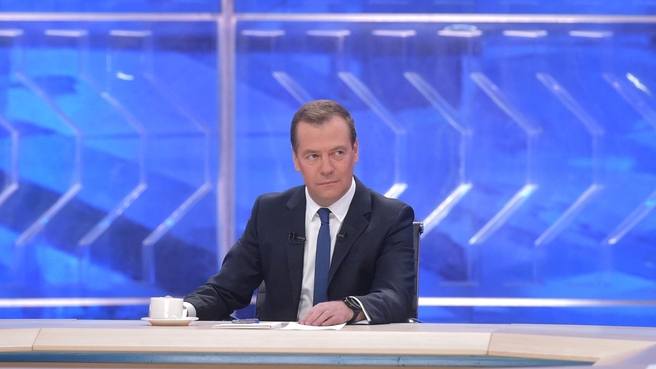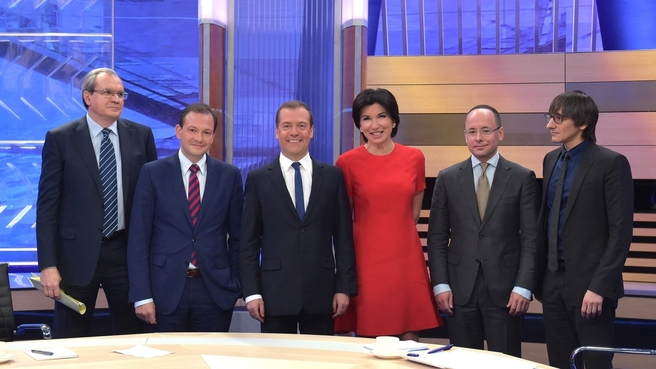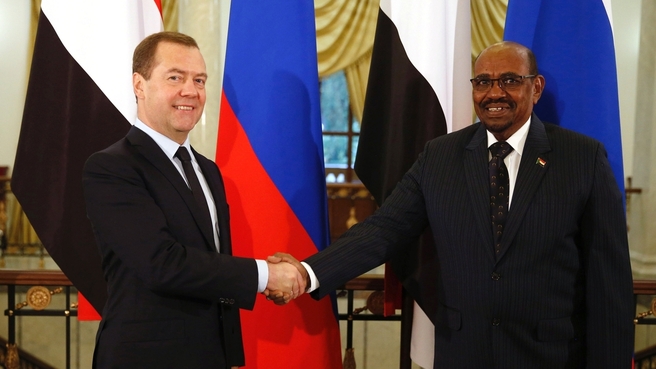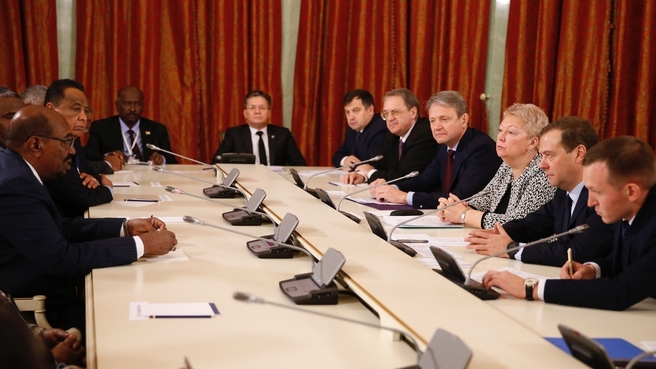Dmitry Medvedev’s conversation with Prime Minister of the Islamic Republic of Pakistan Shahid Khaqan Abbasi
The conversation was held on the sidelines of the meeting of heads of government of the member states of the Shanghai Cooperation Organisation.
Excerpts from the transcript:
Conversation with Prime Minister of the Islamic Republic of Pakistan Shahid Khaqan Abbasi
Dmitry Medvedev: Mr Prime Minister, I am pleased to welcome you.
This is your first visit to Russia as Prime Minister, though you have been here before as a minister and you know our country well. We have an opportunity to compare notes on current issues in Russia-Pakistan cooperation in the framework of today’s and tomorrow’s event – the meeting of the SCO Heads of Government Council. This is all the more important given that next year we mark the 70th anniversary of establishing diplomatic relations between our countries. I would like to say outright that we are interested in developing the most efficient and mutually beneficial cooperation with your country both in the economy, investment, and in the humanitarian area. These days, the fifth meeting of the Intergovernmental Commission is taking place in Moscow. But even though our colleagues are meeting there, we have an opportunity to discuss our current issues directly.
Again, it is my great pleasure to welcome you in Sochi.
Shahid Khaqan Abbasi (via interpreter): Your Excellency, thank you very much.
I thank you for inviting us to join the meeting of the SCO heads of government. We give high priority to relations with Russia, and it is imperative for us to strengthen bilateral relations. We are impressed with the role played by Russia and President Putin and you, and we look forward to the possibility of mutual cooperation so that Russia becomes an active partner in the development of Pakistan.
Bilateral relations are developing. We are improving parliamentary interaction – just next month a State Duma delegation will visit Pakistan. It is a good step for promoting our bilateral relations. I think we should focus on expanding and developing trade relations, too. Forty million dollars is too little for bilateral trade.
I am happy that our views overlap on most international issues. We express them at such venues as the UN and others. We work together at those venues. And we are happy to have the support you render us.
